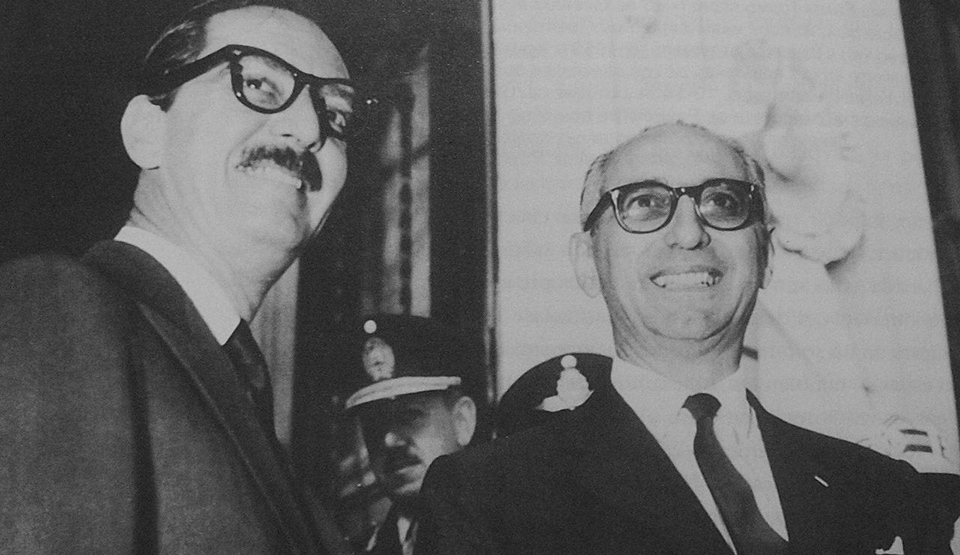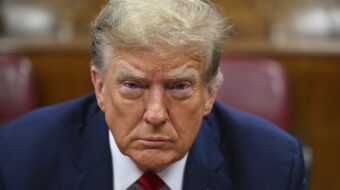
Jânio da Silva Quadros, a Brazilian politician who served as 22nd president of Brazil from Jan. 31 to Aug. 25, 1961, was born 100 years ago on January 25, 1917.
Quadros stunned his nation when he suddenly resigned from office with a terse message to the National Congress, stating, “On this date, and by this letter, leaving with the Minister of Justice the reasons for my action, I resign from the office of the President of the Republic.” Quadros enigmatically cited the “terrible forces” conspiring against him.
Only four days previously, on Aug. 21, 1961, Quadros signed a bill annulling the mining rights of Cleveland, Ohio-based Hanna Mining, and returning the iron ore reserves of the Minas Gerais region to the nation. Brazilians believe that his resignation may have been a ploy to expand his power if there was a demand, by acclamation of the people or by the Congress or the military, for his return to the presidency. However, the Brazilian legislature accepted his resignation. The president of the Chamber of Deputies of Brazil, Pascoal Ranieri Mazzilli, briefly assumed office until Vice President João (Jango) Goulart returned from his trip to the People’s Republic of China.
Goulart took the oath as president on Sept. 7, 1961, although his power was restricted by a constitutional amendment passed on Sept. 2, that created a parliamentary system of government. Three years later Goulart was overthrown by a military coup led by Gen. Humberto Castelo Branco widely thought to have been orchestrated by the United States. That regime stayed in power for two decades. Among its early actions was the restoration of Hanna Mining’s rights to exploit and export Brazilian iron ore.
By the time Quadros was elected president he had already established himself as a colorful and sometimes eccentric populist, campaigning with a broom as a symbol of his pledge to “sweep out corruption.”
He was elected to the São Paulo city council in 1947, and made a successful 1950 run for state deputy of São Paulo. As mayor of São Paulo (1953–54), he balanced the city budget in less than a year.
In 1954, he ran for governor of the state of São Paulo, backed by both the Socialist Party and the National Labor Party (PTN), using the slogan “War on the corrupt rich.” All major newspapers opposed him, but he won narrowly, and had similar economic success as governor (1954–58). A charismatic campaigner, he attracted the votes of the poor by affecting a folksy image with a rumpled appearance but also retained the support of much of the business community.
Higher office called in 1960 when, still using the broom as his symbol, he campaigned to succeed outgoing President Juscelino Kubitschek, who had built the new capital of Brasília but also increased the national debt and oversaw a 500 percent rise in the cost of living. Quadros was elected by a landslide, heading a coalition of his National Labor Party, the Christian Democratic Party and the largest opposition party, the National Democratic Union (UDN). His 15.6 percent margin of victory was the largest until that time for a presidential election held by popular vote.
As president, Quadros terminated 20,000 federal workers and ordered all government employees to work a seven-hour day. After the first two months he had cut spending by 30 percent.
“I have to apply drastic measures to lead this country to sanity,” he told a business group in 1961. “Applause or censure are indifferent to me. My only ambition is to serve and to serve well.”
Quadros banned bikini swimsuits, cockfights, and advertising in movie theatres. He awakened Cold War fears in the U.S. when he reestablished diplomatic relations with the Soviet Union, refused to support John F. Kennedy’s Bay of Pigs invasion of Cuba, and decorated Argentine-Cuban guerrillero Che Guevara. In trying to institute a neutralist international policy with restored relations with the socialist bloc, he lost the support of the UDN in Congress, and was left with no real power. Upon his resignation, no one stood by him.
After the 1965 military ousted President Goulart, they stripped Quadros of his political rights in 1968 and exiled him. He received amnesty in 1980 and returned to São Paulo. Once civilian rule was restored, he served another term as mayor of São Paulo (1985–88) and hoped to become governor again before ill health forced him to retire from politics.
Quadros died in São Paulo in 1992 at the age of 75, remembered for the most part positively by his people. In some ways he can be seen as a precursor to the presidencies of Lula da Silva and Dilma Rousseff. Apart from his personal quirkiness, in retrospect it does seem clear that as president, forces were brought to bear upon him that shortly unfolded as the State Department- and CIA-engineered coup of 1965.
Sources: Wikipedia, Encyclopedia Britannica, The New York Times.












Comments